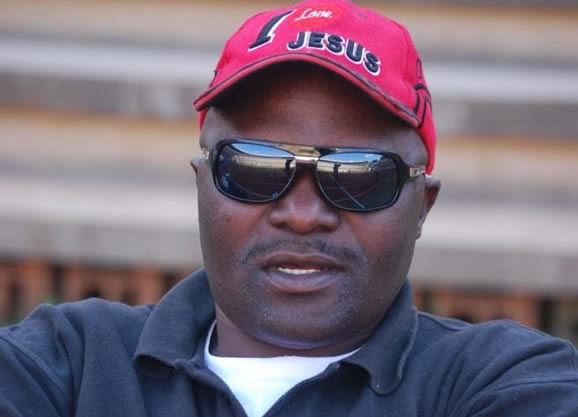Existing US policy on Zim are sanctions, stupid!

THE blowback over the so-called “trip of shame” to the US by MDC Alliance’s Nelson Chamisa and Tendai Biti, along with human rights activist Dewa Mavhinga and Rhodesian journalist and writer Peter Godwin, has been immediate, massive and messy.
The MDC Alliance and the four men would not have anticipated the reaction by Zimbabweans.
And as we have seen in the last few days, Chamisa, Biti and Mavhinga have been forced into an extraordinary and unfamiliar back foot, having to explain and justify the trip, their presentations and the letter and spirit in which they stood before the US Congress purporting to represent the opposition and Zimbabwe in general.
For Zimbabweans, there was a simple explanation for the trip: that the MDC had gone to beg for the maintenance and extension of US sanctions against Zimbabwe, and it is the message that has stuck.
For once, the issue cut across the political divide as Zimbabweans from different persuasions felt something was wrong with Chamisa and Biti – the political representatives – embarking on this course at this material time of the transition from the Robert Mugabe era.
Everyone has high hopes for the future.
There is a lot of goodwill for the new administration of President Emmerson Mnangagwa.
Others — the natural neutral — are willing to give the country and its leader a chance.
There is a lot that can be done right and corrected with time and no dime — and President Mnangagwa has already promised those things such as fighting corruption, reclaiming stolen money, discipline, spending cuts, change laws and so on.
With that trajectory, Zimbabweans can afford to dream.
Again.
Then at a very importune time, the opposition and civil society gets invited to make testimonies in appraisal of the situation in Zimbabwe.
It was bound to be tricky.
During the events that led to the resignation of Mugabe on November 21, the opposition swam with the popular tide and lent weight and colour to the street demonstrations on November 18 and were part of the parliamentary process of impeachment that was due to take place that afternoon before Mugabe threw in the towel.
They had their expectations, which they did little to mask, even when it would have been apparent to them that the removal of Mugabe was largely at the instance and a result of Zanu-PF internal contradictions.
But the opposition has its own character and constituency to which it is accountable.
Its constituency also includes the foreign paymasters in the West who in this case invited the opposition and its cousins in the civil society to make presentations before the US Senate Foreign Relations Committee.
The semantics of sanctions
Tendai Biti was in his usual, aggressive form during the hearings.
Nothing out of the ordinary for the loquacious and grandiloquent Biti.
Mavhinga used the language of the civil society, the donor-fund mongering civil society of Zimbabwe.
He testified that he was the Southern Africa director in the Africa Division of Human Rights Watch where he leads, among other duties, our human rights investigation work on Zimbabwe.
“I frequently travel to Zimbabwe and last month I was in Harare when the military takeover occurred on November 15, 2017. I have met with leaders of the main political parties, private media, and key civil society groups to assess human rights conditions since the military takeover and ahead of national elections scheduled for 2018,” he said.
“A Zimbabwean national myself, I maintain daily contact with local activists, and religious and business leaders in the country who regularly update me on the situation there.”
He then laid out the human rights situation in Zimbabwe and proceeding to lay key recommendations to the US government “for action to press the new Zimbabwean government to ensure a rights-respecting environment leading to democratic, credible, transparent and peaceful elections and political stability thereafter”.
The climax of his presentation was:
“Historically, the US government has shown a strong interest in promoting respect for the rule of law, good governance and human rights in Africa. The Trump administration has yet to demonstrate leadership on human rights issues in Africa so it is more important than ever that Congress promotes human rights as a core pillar of US foreign policy.
“To that end, Congress should support the people of Zimbabwe by calling on the Mnangagwa government to set and implement a clear roadmap for democratic elections. Specifically, Human Rights Watch urges Congress to:
“1. Maintain existing US policy toward Zimbabwe until the military removes itself from politics and the 2018 elections are legitimately assessed to be peaceful, transparent, free and fair and that power is smoothly transmitted to the newly elected government.
“2. Press, through public statements and support to non-governmental organisations in Zimbabwe, for accountability and justice for past serious abuses and respect for the rule of law.
3. Urge the Trump administration to make Zimbabwe’s transition a priority in the region…”
His first recommendation — that of maintaining the “existing US policy toward Zimbabwe”, has what has set the agenda for discussions about the trip.
It does not take a genius to know the “existing US policy toward Zimbabwe” is anchored on sanctions meant to achieve regime change.
Zimbabweans know that.
The sanctions prevent Zimbabwe from accessing lines of credit.
The Zimbabwe Democracy and Economic Recovery Act of 2001 – which is the marquee US policy states inter alia that,
“. . . the Secretary of the Treasury shall instruct the United States executive director to each international financial institution to oppose and vote against:
(1) any extension by the respective institution of any loan, credit, or guarantee to the Government of Zimbabwe; or
(2) any cancellation or reduction of indebtedness owed by the Government of Zimbabwe to the United States or any international financial institution.”
Maintaining this existing “US policy toward Zimbabwe” is hardly something Zimbabweans would cheer at a time when everyone is expecting the world to loosen its purse strings and give the country a financial boost.
Or just so we live our lives, unmolested.
We begin to note that Zimbabweans in their honest minds knew that sanctions were an impediment.
Perhaps, some of us thought that the suffering the sanctions wrought was justifiable in the fight against former President Mugabe.
Indeed, “Mugabe-must-go” was a rallying call and some thought that rules would not apply.
Now that Mugabe is gone, those that tolerated, endured or otherwise rationalised the existence of the embargo find it hard that US should maintain its “existing policy toward Zimbabwe”.
People’s lives and livelihoods were lost to sanctions and Zimbabwe has endured a long night of suffering.
Sanctions are central to the developments in the country for the last two decades.
Nobody can run away from that.
Mavhinga, Biti and Chamisa cannot claim to be smarter than anyone else.
Even in the MDC, there have been loud murmurs with party spokesperson Obert Gutu declaring that “All forms of sanctions that were imposed against Zimbabwe must be IMMEDIATELY removed!!!”
We are sure that a part of Gutu may be enjoying the drama and the fallout which we imagine he likens to skinning a skunk!
Biti’s bit
From the above, much of the discussion — or let’s say defence of the trip of shame – has centred on the question of whether the men in question used the word sanctions.
No, they did not.
That was not the letter, but the call for sanctions was in the spirit.
An analysis of Biti’s testimony will show that he did not use the word sanctions neither did he call for the same, explicitly.
If we dissect the speech, we see Biti trying to, as usual, impress his audience with bombast as he unpacks recent events in Zimbabwe.
He tries to situate Mugabe among other African “dictators” and “autocrats”; narrate the events of November 14 and beyond and lay out a roadmap for the country.
“We ask the international community and the U.S. to keep us in your hearts. Do not allow our country to be forgotten in our battle against tyranny and poverty and for democracy and human rights. Our election requires active support and oversight from the international community, including our American friends,” he concludes.
He does not mention sanctions.
No. However we know the implicit message.
Our American friends so love us that they gave us sanctions, and they can keep them forever as long as the MDC is not in power.
The Americans heard.
Zimbabweans understood, too, and they were unhappy.
They are still seething.
Zimbabweans can forgive Peter Godwin – the Rhodesian Jew – who, after all said nothing of substance on this platform save for some kind of entertainment with his written piece, probably part of another book.
And didn’t he add colour as well — symbolically!










Comments